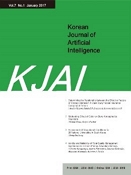- Log In/Sign Up
- E-ISSN2508-7894
- KCI
 E-ISSN : 2508-7894
E-ISSN : 2508-7894
Selecting Optimal Algorithms for Stroke Prediction: Machine LearningBased Approach
Kyung-A KIM (Eulji University)
Myung-Ae CHUNG (Eulji University)
Min Soo KANG (Eulji University)
Abstract
In this paper, we compare three models (logistic regression, Random Forest, and XGBoost) for predicting stroke occurrence using data from the Korea National Health and Nutrition Examination Survey (KNHANES). We evaluated these models using various metrics, focusing mainly on recall and F1 score to assess their performance. Initially, the logistic regression model showed a satisfactory recall score among the three models; however, it was excluded from further consideration because it did not meet the F1 score threshold, which was set at a minimum of 0.5. The F1 score is crucial as it considers both precision and recall, providing a balanced measure of a model's accuracy. Among the models that met the criteria, XGBoost showed the highest recall rate and showed excellent performance in stroke prediction. In particular, XGBoost shows strong performance not only in recall, but also in F1 score and AUC, so it should be considered the optimal algorithm for predicting stroke occurrence. This study determines that the performance of XGBoost is optimal in the field of stroke prediction
- keywords
- Stroke prediction, Machine learning, KNHANES, XGBoost
- Submission Date
- 2024-02-14
- Revised Date
- 2024-04-08
- Accepted Date
- 2024-06-05
- Downloaded
- Viewed
- 0KCI Citations
- 0WOS Citations














